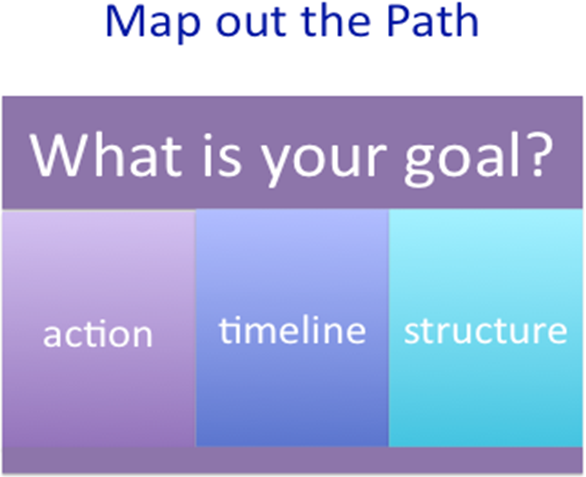Dialogue – the exploring phase
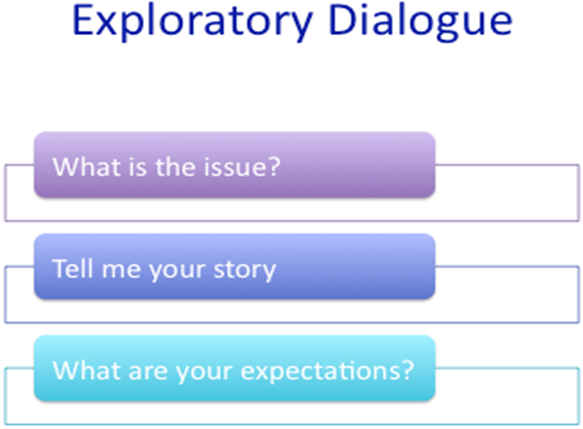 Here is where we invite the client to articulate the issue, the event, the feeling, the emotion, the background, the change that needs to or about to happen, the consequences, the desired outcome, and indeed, anything the client deems as relevant and wants to share. This is where the client sets the agenda for the coaching relationship. The quality most needed from the coach at this stage is curiosity, active listening, encouraging self-observation, sounding back, discovering and affirming the positive traits, holding the space and be present.
Here is where we invite the client to articulate the issue, the event, the feeling, the emotion, the background, the change that needs to or about to happen, the consequences, the desired outcome, and indeed, anything the client deems as relevant and wants to share. This is where the client sets the agenda for the coaching relationship. The quality most needed from the coach at this stage is curiosity, active listening, encouraging self-observation, sounding back, discovering and affirming the positive traits, holding the space and be present.
Vision – the energizing phase
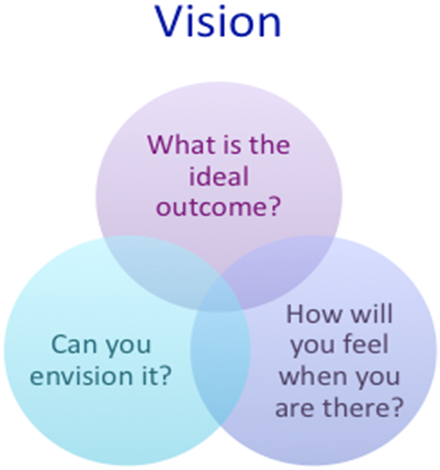 Change is more likely to happen if the desire for change is strong. Before diving into the “how”, we can spend some time with the client to envision the ideal outcome. This serves to appeal to both the rational and the emotional side of the client. Visualization would be a good tool to use here. A clear and vivid vision can motivate and energize the client to take action.
Change is more likely to happen if the desire for change is strong. Before diving into the “how”, we can spend some time with the client to envision the ideal outcome. This serves to appeal to both the rational and the emotional side of the client. Visualization would be a good tool to use here. A clear and vivid vision can motivate and energize the client to take action.
Reality – the analyzing phase
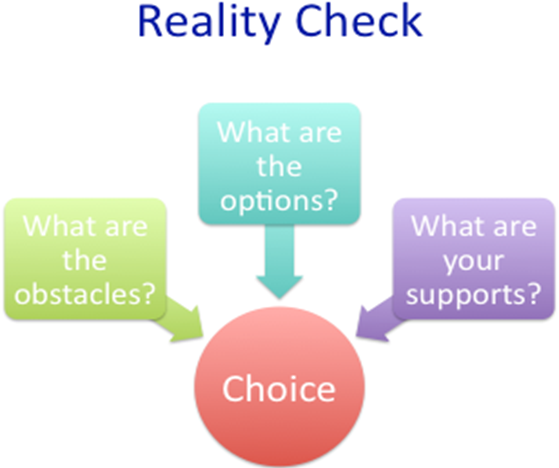 The reality check starts with fact finding, moves on to brainstorming all possible options, weighing the pros and cons, identifying the obstacles, enlisting all help at hand, and making a choice! The coach is the collaborator in this process, who needs to have a good understanding of where the client is and where s/he wants to be, but the coach should be detached from any particular choice.
The reality check starts with fact finding, moves on to brainstorming all possible options, weighing the pros and cons, identifying the obstacles, enlisting all help at hand, and making a choice! The coach is the collaborator in this process, who needs to have a good understanding of where the client is and where s/he wants to be, but the coach should be detached from any particular choice.
Path – the action phase
The agenda should turn into a SMART goal at this stage (if not earlier). This is where the coach looks for a commitment from the client by asking, “What will you do to achieve your goal?” An action plan with a timeline solidifies the commitment. A structure would make it easier for the client to carry out the commitment.
Reflection – the learning phase
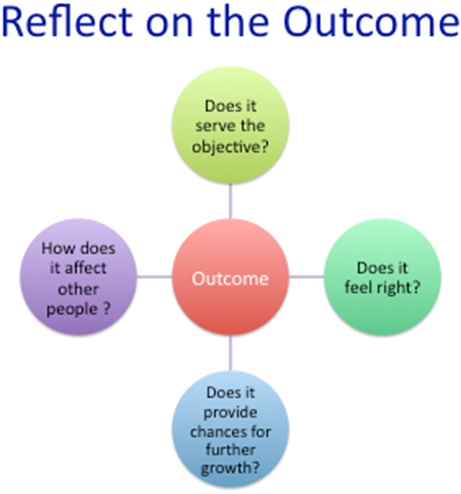 Reflection doesn’t have to wait until the goal is achieved. Every new insight, perspective, revelation, or action taken will bring in something new. Successful coaching should achieve a transformation of the person, which enables smoother future change and development. Reflecting on what has happened helps to generalize what has been learnt and project the knowledge into future events.
Reflection doesn’t have to wait until the goal is achieved. Every new insight, perspective, revelation, or action taken will bring in something new. Successful coaching should achieve a transformation of the person, which enables smoother future change and development. Reflecting on what has happened helps to generalize what has been learnt and project the knowledge into future events.
